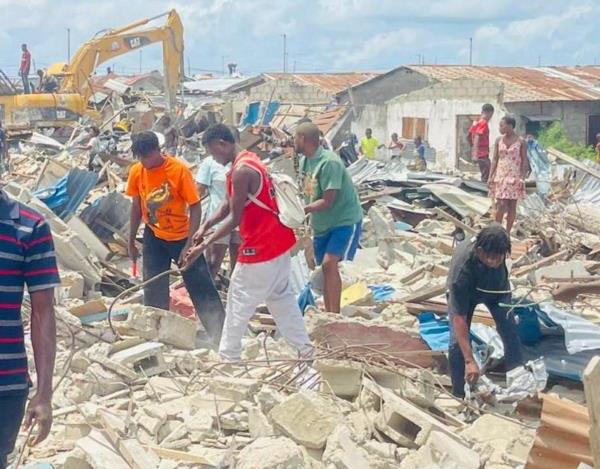Lagos Pulls Down Illegal Coastal Buildings, Plans Waterfront Summit
The Lagos State Government has begun demolishing unapproved buildings along the Lekki and Iyana Oworonshoki waterfronts. The operation, which started in the early hours of Saturday, left many residents homeless.
Officials say the action is part of efforts to protect the state’s lagoon and coastline. Earlier in the week, the Ministry of Waterfront Infrastructure Development warned that uncontrolled dredging estimated at 10,625 cubic metres of sand daily threatens aquatic life and could cause the lagoon to collapse.
How the Demolition Happened
At Ojulari in Oworonshoki, residents were woken at midnight as bulldozers and security officers moved in. The Lagos State Building Control Agency (LASBCA), supported by the Rapid Response Squad (RRS), led the exercise.
Some tension arose when security agents fired tear gas to control protests. Occupants were later allowed a short time to pack their belongings. The demolition was then paused for two weeks to give residents more time to relocate.
In Oworonshoki, the crackdown focused on unapproved houses built on reclaimed land by the lagoon. In Lekki, it targeted shanties said to be occupied by miscreants and environmental offenders. Despite being served a month’s quit notice, many residents refused to vacate.
Government’s Stand
Commissioner for Waterfront Infrastructure Development, Dayo Bush Alebiosu, said coastal erosion has already swept away communities like Idotun in Ibeju-Lekki. He warned that Lagos faces similar risks as other coastal cities in West Africa, such as Keta in Ghana.
He added that Lagos is working with the Netherlands on coastal protection and will carry out surveys to identify areas badly damaged by illegal dredging.
Waterfront Summit
To address these issues, Lagos will host its first Waterfront Summit from September 11–13, 2025, in Victoria Island. The theme is “Pressure on the Lagoon: The Lagos Experience.” Over 500 experts are expected to attend to discuss solutions.
Alebiosu stressed that the lagoon, if well managed, can boost transport, tourism, trade, and fisheries. He called the summit a “call to action” for all Lagosians to protect the lagoon as a vital part of the state’s heritage and economy.
Governor Babajide Sanwo-Olu’s administration says it is committed to safeguarding Lagos’ waterfronts for future generations.




